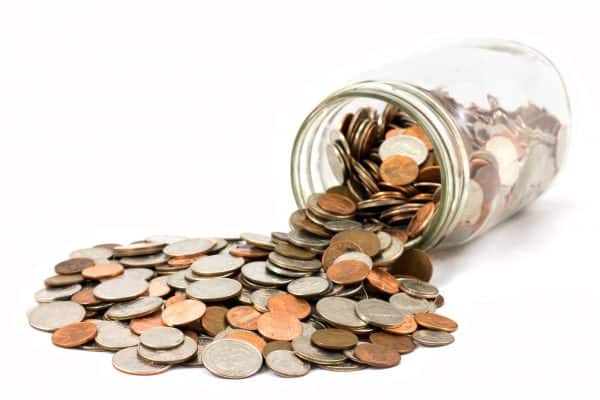When it comes to managing your finances, every penny really does count. That’s why knowing what’s what with overdraft fees and payday loan interest is so important, especially when an unexpected cost hits and you just don’t have enough to cover that and your usual expenses until payday. There’s no denying that having a bank account with an overdraft can be useful, but the charges attached, especially to unauthorised overdrafts, can leave you worse off than you were before. So how do you choose whether to use an overdraft or take out a payday loan?
What is an overdraft?
An overdraft is a facility provided by your bank as part of most bank accounts that allows you to borrow money through your current account – that is, spend more money than you have in your account. An overdraft may come with your account automatically when you set it up, or you can request it from your bank later. There are two types of overdrafts:
- Arranged overdrafts are approved by your bank in advance up to a certain amount – an agreed limit that you can spend. You will usually pay interest and sometimes a nominal usage fee on money you spend from this allowance until your overall account balance returns to zero.
- Unauthorised overdrafts are not agreed beforehand and are approved by your bank on a transaction by transaction basis when you spend beyond your account balance or authorised overdraft limit. If you use an unauthorised overdraft, you will pay higher interest and usage fees, sometimes by transaction. The cost of unauthorised overdraft fees varies by bank, so it’s worth checking with yours so you know where you stand. If you are out of money and your bank declines an unauthorised overdraft, then your transaction will simply be rejected.

Read more: How To Save Money When You Are Bad At Saving
When should you use an overdraft?
Having an authorised overdraft attached to your account can be a useful safety net and is especially useful when you have an unexpected expense to deal with. An unauthorised overdraft can also be useful in this respect, but as it is approved on a transaction by transaction basis, should not be depended upon and should only be used as a last resort. Either type of overdraft should really only be used as a short-term solution – if you slip into your overdraft regularly, the usage fees and interest could add up to a big financial problem, and you should avoid using more than you absolutely need to minimise the fees you pay.
How is a payday loan an alternative?
Taking out a payday loan when you have an unexpected bill can sometimes be a more suitable option than an overdraft. While an authorised overdraft can be a good option for a relatively small sum of money, for larger sums or amounts that you would need an unauthorised overdraft to support, a payday loan could be a better option.
If you are using an overdraft, the amount you have borrowed will automatically be repaid when more money arrives in your account, meaning you may have to keep dipping into your overdraft for a long time before you’re back on track. With a payday loan, however, you’ll have a specific sum to pay back each month for a number of months. Payday loans are usually paid back over a period between three and six months at a cost you’ll have agreed with your lender up front. This makes it easier for you to plan your spending and avoid a lengthy cycle of overdraft fees and interest charges.

Related: How To Survive Until Payday When You’re Low On Money
Payday loan charges compared to unauthorised overdraft fees
In Summer 2016, the BBC reported that the cost of using an unauthorised overdraft can be more expensive than taking out a payday loan.
Under FCA regulations introduced in 2015, the most someone who takes a payday loan of £100 for 28 days will pay in interest is £22.40. However, somebody using an unauthorised overdraft for the same amount and duration could face fees of up to £90 – this is a substantial amount of money!
The way payday loans allow you to pay back a certain amount a month – and often save on interest if you repay early – means that in some situations they may be a more manageable option.
Whichever option you choose to fund an unexpected expense, make sure you do your research up front and ensure you can afford the associated costs. When you’re already dealing with the unexpected, you don’t need any more surprises!
About Sunny
Sunny is a UK-based payday lender that has offered over 1 million short-term loans to its customers. It prides itself on offering a fee-free borrowing option to cover unexpected and emergency expenses, and is authorised by the Financial Conduct Authority.



















